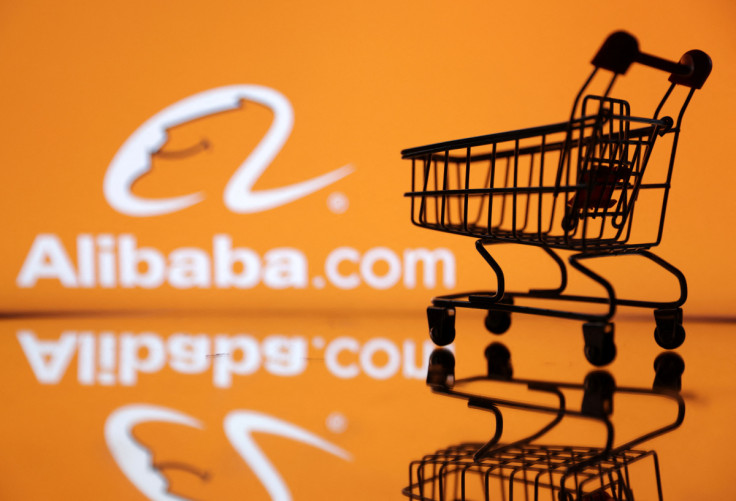Ukraine War Anniversary: Asian companies show half-hearted response in scaling back operations in Russia

KEY POINTS
- Most Asian brands have chosen to remain quiet about their plans
- Japanese firms make up more than half of the Asian brands that have suspended operations
- International brands like Toyota, Sony, Nissan, and Nintendo seized operations in Russia
The corporate world's reaction to Russia's invasion of Ukraine which took place on Feb. 24, 2022, indicated an East-West rift with many Asian companies refraining from withdrawing their services in Russia.
While North American and European firms rushed to sever their connections with Moscow, Asian companies largely sat out campaigns that aimed to isolate and penalise Moscow that went beyond their legal obligations under the sanctions.
As the Russia-Ukraine war, which is the biggest war in Europe since World War II, enters its second year, this situation remains largely unchanged.
Asian firms' stance on ending their business in Russia
Less than 100 of the more than 1,100 Asian businesses announced plans to withdraw from Russia by scaling back on operations or suspending operations in the country. According to statistics from the Chief Executive Leadership Institute (CELI) at the Yale School of Management, this includes globally renowned brands like McDonald's, Coca-Cola, Starbucks, Apple, and Nike.
Only a handful of companies from major economies like China, India, and South Korea have refrained from severing their ties with Russia. The responses of corporations have largely reflected the stances of the governments in the countries they are based in.
Meanwhile, Japanese firms make up more than half of the Asian brands that have suspended or scaled operations in Russia since the invasion of Ukraine.
Japan distinguished itself from its neighbours by enacting strict penalties
Japan, which is a close ally of the U.S., is also involved in some territorial disputes with Russia. The country had taken the hardest stance against Moscow in the region by imposing multiple rounds of sanctions against Russian officials and entities.
In addition to the 50 Japanese companies that have left Russia or reduced their operations are well-known international brands like Toyota, Sony, Nissan, and Nintendo.
The impact and relevance of the Russia-Ukraine war on Asian countries
According to analysts, the East-West divide in business reflects the different perspectives about the relevance of the conflict to their region.
"Russia is in many ways more distant for Asia and Asians. When Russia is mentioned and on the agenda in Asia, it is mostly about energy and trade issues rather than deep Cold War issues and collective societal memories," said Martin Roll, a branding consultant based in Singapore and the author of Asian Brand Strategy, speaking to Al Jazeera.
"Therefore, the war in Ukraine is more distant to Asia on an aggregate level. It does not mean that Asia and Asians do not see it or do not care, the war is just far away. There are many conflicts in the world, and the war in Ukraine is one of them, though one at unprecedented scale," he added.
Instead of imposing severe sanctions on Russia, China and India were observed increasing their energy imports from the country. Many of the most well-known companies that continued regular operations in Russia include Indian car manufacturer Bajaj Auto and Chinese tech giants like Alibaba and Didi.
According to data from CELI, only 12 Chinese and Indian companies in total, including the Bank of China and Tata Steel, decided to scale back on their business operations with Russia. Meanwhile, five South Korean companies—including the flagship conglomerates Samsung and Hyundai—have announced the suspension of their operations in Russia.
Asian companies that have distanced themselves from Russia
Only a total of five companies from Singapore, Malaysia and Vietnam have publicly sought to distance themselves from Russia. These countries have tried to strike a balance between their ties with East and West.
Other Asian brands have chosen to either cautiously remain in Russia or stay quiet about their plans and operations in the country.
Marcus Osborne, the founder and chief executive of Fusionbrand, a branding consultant in Kuala Lumpur, Malaysia, said the region's neutral stance towards the conflict represents a long-standing reluctance to get involved in conflicts abroad.
"I think it's essentially cultural — a reluctance to get involved in other country's affairs — especially when it is so far away in geographical, ideological and other terms. And they may be thinking if we get involved, what happens if there is a conflict in our region, does it mean they can get involved here?" Osborne said.
According to the outlet, Sumati Varma and Rajeev Upadhayay, professors of commerce at the University of Delhi, India, commented that instead of the situation in Ukraine, the region has been mainly focusing on economic recovery and cost of living following the pandemic.
"As the post-pandemic global environment led to the worst economic depression in decades, responses of countries have attempted to combine domestic issues of survival with social and ethical concerns," Varma and Upadhayay said.
"The current conflict has exacerbated the global crisis as prices of food, oil and fertilisers have skyrocketed across the world, complicating domestic issues for many Asian countries."
While companies in the West came under serious pressure to penalise Russia, brands in Asia did not face the same pressure.
© Copyright IBTimes 2025. All rights reserved.





















